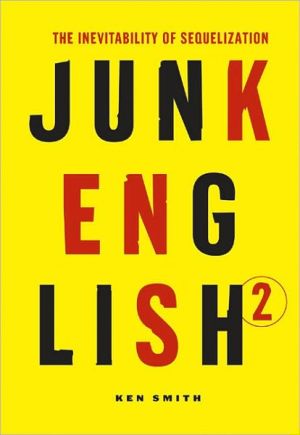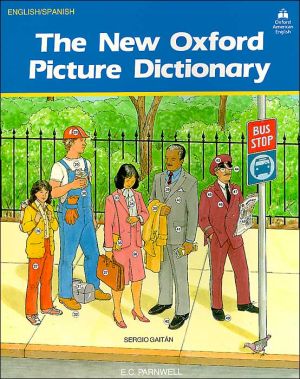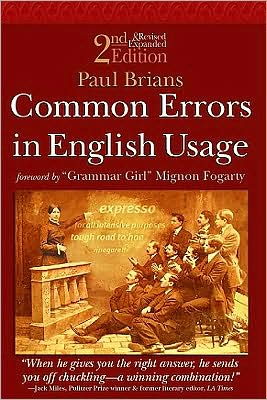Junk English 2
Updating his survey of language atrocities, Ken Smith has again subjected himself to the continuing barrage of mindless jargon, hackneyed expressions, and war euphemisms. With hundreds of new examples pulled from everyday life, Junk English 2 shows how our language has become so pliable and flabby that the more we read and hear, the less we know.
Search in google:
Junk English 2 combines basic advice — peppered with contemporary examples of alarmingly common verbal atrocities — with entertaining invective. Based on the author's uncounted hours of exposure to infomercials, ads, and other dubious cultural forms, the book covers topics like "parasitic intensifiers," "-ize verbs," and the dreaded "weasel words." "Useless cabooses" — as well as frequently abused words like "focus," "factor," and "process" — are examined and put in their proper place, as are the seemingly unstoppable impulses toward vagueness and euphemisms. Written so that the ordinary writer and speaker of English can readily see the manipulations of language, especially in the post-9/11 era, Junk English 2 is useful as a quick reference, a source for further exploration, and a fun read. The book is arranged alphabetically, like a dictionary, providing a compendium of frequently abused words and suggested alternates. Publishers Weekly If George Orwell's "Politics and the English Language" were updated and expanded to address today's lexical and syntactic problems the tendency to make verbs out of nouns and nouns out of verbs, a general fondness for business-speak and verbal inflation, just to name a few it might look like Junk English. Ken Smith's (Mental Hygiene; Ken's Guide to the Bible) slim volume is a quirky, pleasingly judgmental dictionary of language crimes. From "invisible diminishers" ("virtually flawless") to technology jargon ("It is simply not natural to use feedback for opinion, [or] synthesis for combination"), Smith will delight language purists with his wit while confirming their grave assessments of contemporary speech. Copyright 2001 Cahners Business Information.
Junk English excerpts\ \ \ All of the examples in Junk English (quoted without correction of typographical or grammatical error) were taken from life: newspaper and magazine articles; radio and television commentators; advertisements and editorials; minimum-wage workers and millionaire executives; the underclass and the ruling elite. None came from internal business or political memoranda; all were intended to be understood by ordinary people.\ Abstract Adjectives. Adjectives are not frivolous. Their job is to describe the noun to which they are attached more fully and definitely: desperate author, crazy decision, unread book. Adjectives that are not definite are detrimental; if they do not make nouns clearer, they do not help others to understand what is being expressed.\ Abstract adjectives in vogue are major, positive, quality, and serious, with alternative, feasible, and impact not far behind in popularity. Some of these are actually abstract nouns, and when paired as adjectives with other abstract nouns, e.g., positive impact, serious alternative, they make a great show but say little.\ Address, when not used to describe the location of a building, is often employed by those who wish to be evasive and yet sound as if they are not.\ Our product was specifically developed as a safe alternative for men who prefer an all-natural approach to address [treat] impotence. \ I will address [confront] these policy issues.\ Let me address [answer] that question.\ "Any worthy energy policy must address [stop] the price gouging of consumers by greedy energy suppliers," Davis said.\ \ Affordable is a word often used by advertisers who want to persuade buyers that a car or washing machine or bedroom set is inexpensive when it is not. An affordable product, sometimes inflated to very affordable, is one that a customer can fit within his or her budget, usually on the installment plan, with interest. Strictly speaking, the product is thus affordable, but affordable is not a synonym for cheap.\ Ambiguity. The temptation to use words out of novelty or because they are fashionable is strong. This sometimes leads unwitting writers to create puzzling ambiguities.\ The results of the cancer screening test were positive. \ Most Silicon Valley insiders agree that the offering price is outrageous.\ \ Should the recipient of the test results feel relieved or heartbroken? Is the stock being sold for a pittance or a fortune?\ Anonymous Acronyms. Organizations engaged in politically or socially controversial activities sometimes compress their names, or the names of things within their domain, into a series of letters, in an attempt to mask the nature of their work. Thus the Consolidated Mining and Smelting Company of Canada becomes COMINCO, the Conservative News Service becomes CNS News, and Multi-Level Marketing — itself a euphemism for pyramid scams — becomes MLM. Sometimes this deception works and sometimes it doesn't.\ Acronyms are meant to be easy to recall, the intent being that no one will need to refer to the lengthier phrase they stand for. The Geheime Staatspolizei (secret state police), for instance, reduced its name to the acronym GESTAPO, which was perhaps easier to recall than this organization ultimately wanted.\ Some modern acronym makers have learned to make their acronyms unpronounceable and innocuous. There is no chance that DWPF (Defense Waste Processing Facility) will ever roll lightly off the tongue or that MRM (Mechanically Recovered Meat) will ever call to mind a disagreeable image. Both are anonymous and easy to skip over, never even briefly tempting a reader to linger and think.\ Apology words are special, earnest-sounding parasitic intensifiers, among them genuinely, honestly, 100%, really, seriously, sincerely, and truly. Their appearance tacitly concedes that the word or phrase that immediately follows has been stretched thin in current usage — really free, sincerely moved, genuinely shocked, 100% legal — but that this time, honestly, what we are about to read is the truth.\ Would you seriously like to make $2,000 - $5,000 per week starting right away? \ Take this opportunity to learn risk free the most effective way to truly meet that someone special.\ If you request removal we really will remove you immediately.\ This is honestly the most effective weight-reduction program I have ever tried.\
\ Publishers WeeklyIf George Orwell's "Politics and the English Language" were updated and expanded to address today's lexical and syntactic problems the tendency to make verbs out of nouns and nouns out of verbs, a general fondness for business-speak and verbal inflation, just to name a few it might look like Junk English. Ken Smith's (Mental Hygiene; Ken's Guide to the Bible) slim volume is a quirky, pleasingly judgmental dictionary of language crimes. From "invisible diminishers" ("virtually flawless") to technology jargon ("It is simply not natural to use feedback for opinion, [or] synthesis for combination"), Smith will delight language purists with his wit while confirming their grave assessments of contemporary speech. Copyright 2001 Cahners Business Information.\ \ \ \ \ Library JournalAs Smith (Mental Hygiene) here argues, our language has become pliable and flabby, filled with sloppy grammar, pretentious phrases, and, above all, loudness. "Junk English" is most often a trick we play on ourselves to make the unremarkable seem important. The result is "Edmund Burke's tyranny of the multitude merged with George Orwell's Newspeak, a world of humbug in which the more we read and hear, the less we know." This point is well made in an abundance of succinct examples, alphabetically arranged, which reveal the misuse of words, the overemphasis on euphemisms, the "verbalizing of perfectly good nouns," and other grammatical errors. Smith readily admits that what results is his own judgmental collection of observations, not a text of grammar or style. The errors are blatant and familiar, representing Smith's heightened sensitivity to poor English as found in newspapers and magazines, radio and TV, advertisements and editorials, as well as everyday life. Compact in size, reasonably priced, and nicely updating Richard P. Lederer's Fractured English (Pocket, 1996), this is highly recommended for all libraries and could be considered essential reading in English classes. Dale Farris, Groves, TX Copyright 2001 Cahners Business Information.\ \ \ Forbes FYIAn admirably cranky little book...refreshingly judgmental...will make you laugh, and you'll never use effort as a verb again.\ \ \ \ \ Library JournalAs Smith here argues, our language has become pliable and flappy, filled with sloppy grammar, pretentious phrases, and, above all, loudness. Junk English is most often a trick we play on ourselves to make the unremarkable seem important. The result is "Edmund Burke's tyranny of the multitude merged with George Orwell's Newspeak, a world of humbug in which the more we read and hear, the less we know." This point is well made in an abundance of succinct examples, alphabetically arranged, which reveal the misuse of words, the overemphasis on euphemisms, the "verbalizing of perfectly good nouns," and other grammatical errors. Smith readily admits that what results is his own judgmental collection of observations, not a text of grammar or style. The errors are blatant and familiar, representing Smith's heightened sensitivity to poor English as found in newspapers and magazines, radio and TV, advertisements and editorials, as well as everyday life. Compact in size, reasonably priced, and nicely updating Richard P. Lederer's Fractured English (Pocket, 1996), this is highly recommended for all libraries and could be considered essential reading in English classes.\ \ \ \ \ Minneapolis Star & TribuneSmall and streamlined, almost a thesaurus of sloppy usage...deserves a place on the desk of any writer or editor.\ \ \ \ \ NYPressA new Strunk & White...written in such a humorous, nonthreatening way that it might actually be of some use.\ \ \ \ \ Publisher's WeeklyIf George Orwell's "Politics and the English Language" were updated and expanded to address today's lexical and syntactic problems -- the tendency to make verbs out of nouns and nouns out of verbs, a general fondness for business-speak and verbal inflation, just to name a few -- it might look like Junk English. Ken Smith's slim volume is a quirky, pleasingly judgmental dictionary of language crimes. From "invisible diminishers" ("virtually flawless") to technology jargon ("It is simply not natural to use feedback for opinion, [or] synthesis for combination"), Smith will delight language purists with his wit while confirming their grave assessments of contemporary speech.\ \ \ \ \ Washington PostJunk English is terrific...lively, funny, and impeccably right-minded...takes mighty whacks in all the right places.\ \








